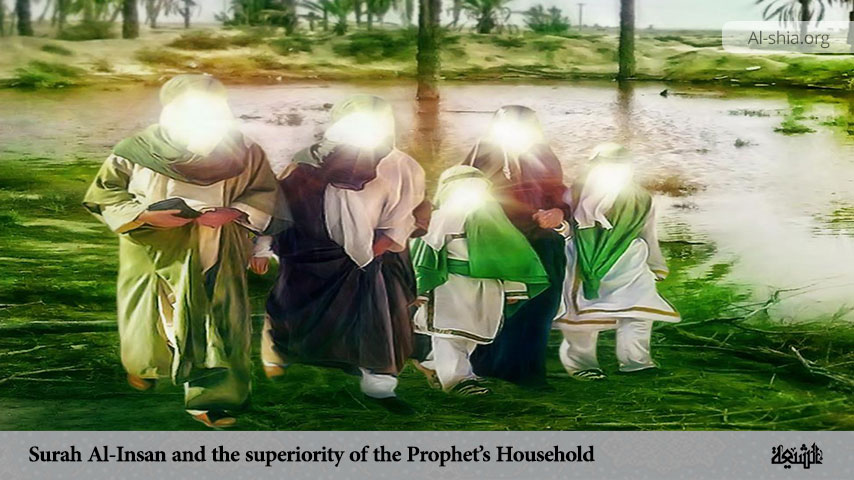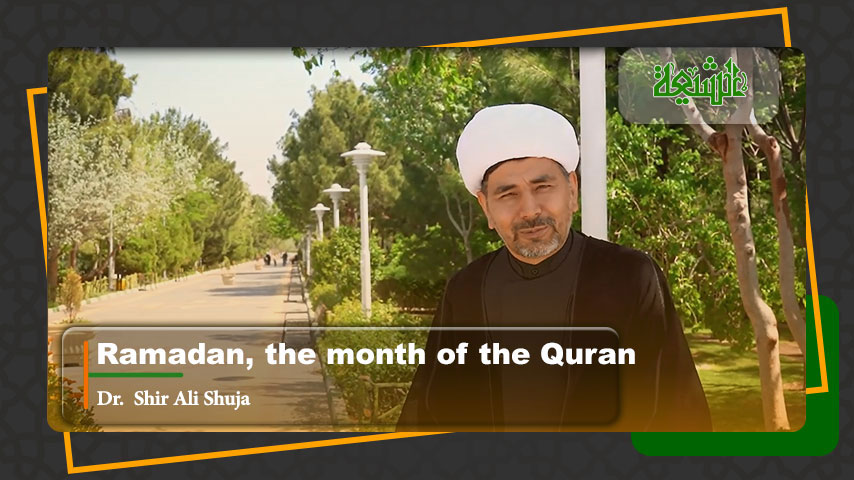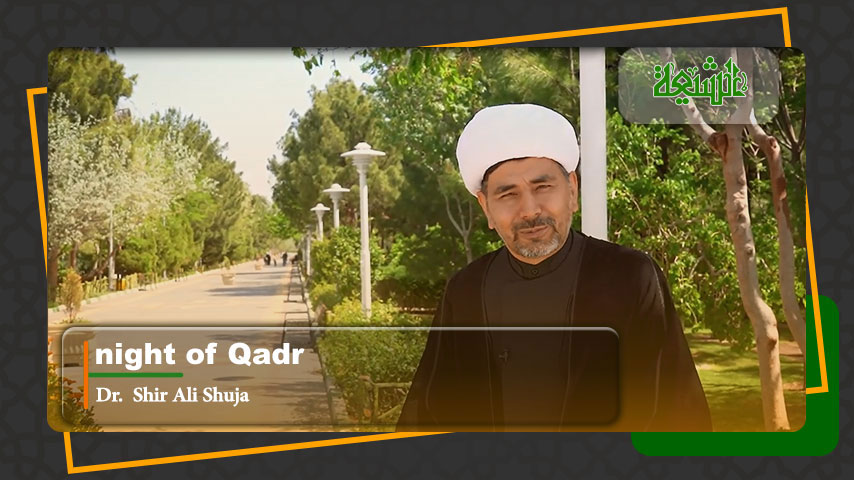Surah Al-Insan (Mankind) or Surah Al-Dahr (The Time) was revealed in Medina and contains 31 verses. Despite its brevity, this Chapter presents a deep, varied and comprehensive theme which can be categorized into five sections: man’s creation from a drop of mingled sperm; his guidance and his free will; the reward promised the Righteous (This part is related to the pure Prophet’s Household); the merits which cause one to deserve the rewards; the importance of The Qur’an, and the dominance of Allah’s Will. In the article, we shall examine the part related to the superiority and excellence of the pure Prophet’s Household (Ahl al-Bayt). It is pertinent to mention that verses 5 to 11 of the Chapter were revealed in honour of the pure Household of the Prophet:
It was narrated by Ibn Abbas that at a time, both Hasan and Husain were sick and the Messenger of Allah (PBUHH) along with a group of his companions came to visit them. Then he said to Imam Ali: “O Abul Hasan! It would be good if you took an oath (to Allah) for your children to be cured of their sickness.”
Thus, Imam Ali and Fatima, and their maid, Fidhah, made an oath to Allah that if the children recovered, then they would fast for three days. According to some traditions, Hasan and Husain also participated in the oath. After a while, both the children were cured and became well. It is now the time to fulfil their oath of a three-day fast.
At the time of breaking the fast on the first day, a beggar came to the door of their house and said: ‘Peace be upon you, O’ family of Muhammad! I am a poor person from among the poor Muslims. Please give me some food – may Allah bless you with food from Paradise!’ All of the members of the house gave their portion of bread to the beggar and that evening, they all broke their fast with only water.
At the time of breaking the fast (Iftar) on the second day, an orphan came to the door and just like the previous day and said: ‘Peace be upon you, O’ family of Muhammad! I am an orphan from among the Muslim orphans. Please give me some food – may Allah bless you with food from Paradise!’ They gave the orphan whatever they had. Again, they broke their fast with only water and prepared to begin the third day of fasting.
On the third day, a war-captive came to their house at sunset, asking for food and said: ‘Peace be upon you, O’ family of Muhammad! I am a war-captive from among the Muslim community. Please give me some food – may Allah bless you with food from Paradise!’
All the members of the noble family once again gave away all of the food which they had to the captive. On the morning of the fourth day, Imam Ali took Hasan and Husain by the hand and went to see the Prophet. When the Prophet saw them and their conditions as they were trembling due to their intense hunger! He immediately said to them: ‘It is very troubling for me to see you in such a state!’
The Prophet got up and accompanied them to the house of Fatimah and saw her standing in the prayer niche. She too was suffering the pangs of hunger which were evident from her frail body and the heavy inset of her eyes. Witnessing this heart-breaking sight, the Prophet became extremely grieved.
Immediately at this point, a revelation was brought by the Angel Gabriel whereby Allah acknowledged and appreciated the unique sacrifice of the pure Prophet’s Household and the Messenger of Allah then recited the verses which were revealed to him: Indeed, the pious will drink from a cup seasoned with Kafur, a spring where Allah’s servants will drink, making it gush forth as they please. They fulfil their vows and fear a day whose ill will be widespread. For the love of Him, they feed the needy, the orphan and the prisoner, [saying,] ‘We feed you only for the sake of Allah. We desire no reward from you, nor thanks. Indeed, we fear a frowning and fateful day from our Lord.’ So, Allah saved them from that day’s ills and graced them with freshness [on their faces] and joy [in their hearts]. (Qur’an 76: 5-11)
Based on the reason for the revelation of these verses, the true and perfect manifestation of these verses is Imam Ali, Lady Fatimah Zahra and their two sons, Hasan and Husain who fulfilled the oath that they had made by fasting for three consecutive days, while breaking their fast with a mere glass of water! It was through this act that their hearts became filled with the awe of Allah and anxiety over the Day of Judgment. It rather takes self-sacrifice to perform this action when one himself is in a state of desperate need.
The Shia scholars are unanimous that these eighteen verses, or rather the entire Chapter, were revealed about the noted event and all of them, without exception have stated in the books of exegesis and traditions that the narrations concerning this event constitute one of the important distinctions and virtues of Imam Ali, Fatimah Zahra, and their two sons. In addition, the above-quoted tradition is also very well-known among the Sunni scholars and it is even considered a consecutively narrated tradition [1] (Hadith Mutawatir).
Furthermore, this event is so well known and acknowledged that even in the poems which have been written (by both the Shia and the Sunni), such as the well-known poem of Imam al-Shafi, this event has been mentioned!
At this point, let us review some of the excuses and doubts which are brought up every time the merits and greatness of Imam Ali are brought forth by those who show an extreme sense of resentment toward him.
Argument 1: They say that this chapter was revealed in Mecca, whereas the particular historical event clearly shows us that this chapter was revealed regarding something which took place after the birth of Imam Hasan and Imam Husain which no doubt took place in Medina.
Response: There are clear proofs at hand which show that the entire content of Surat al-Insan or at least the eighteen verses mentioned previously were revealed in Medina. The consensus of the scholars and exegetes from the Shia tradition is that the entire chapter or at least the beginning section in which the status of these righteous individuals (the Ahl al-Bayt) and the actions of these noble personalities have been mentioned was revealed in Medina. In addition, it is well-known among Sunni scholars that the revelation of these verses was in Medina [2].
Argument 2: The wordings of the verses are general; thus, how can we apply them to specific individuals?
Response: Simply having verses which are of a general nature does not go against the principle that they may be revealed for specific individuals.
There are many verses of the Qur’an which have a very general and comprehensive meaning; however, the history of revelation shows us that they have a specific interpretation. It is amazing to see that some people can take a general understanding of a verse to negate the reason for the revelation of that specific verse!
Argument 3: Some individuals (such as al-Suyuti in his work, Durr al-Manthur) have stated that there are other reasons for the revelation of this chapter and its verses and these reasons are not in line with what has been stated.
Response: Keeping in mind that those traditions mentioned in Durr al-Manthur of Suyuti have no relationship with the contents of Surat al-Insan, it seems that such traditions were fabricated by the Umayyad Dynasty or others in order to distort the actual reason for the revelation of this chapter!
Argument 4: Another excuse that may be given concerning the reason for the revelation of this chapter is that how is it possible for a person to go three days without food and to break his fast with merely a glass of water!?
Response: This is one of the most ridiculous criticisms that can be brought up in regards to this chapter as we ourselves have seen many people in our lifetime who, in order to be cured of a specific sickness, have been instructed by their doctor to fast for not only three days which is very easy, rather, they have fasted for a period of forty days in which they only drink water and completely abstain from food! It is through such a medically sanctioned program that they have been able to ward off many illnesses!
Footnotes:
[1]. Refer to the books of “Al-Ghadir”, vol. 3, pg. 107 to 111; Ahqaq al-Ḥaqq, vol. 3, pg. 157 to 171 in which the above quoted tradition has been narrated from 36 Sunni scholars and leaders with their sources of reference.
[2]. Majmaʽ al-Bayan, vol. 10, pg. 405; Tārikh al-Qurʼan, pg. 55; Tafsir al-Kashshaf, vol. 4, pg. 670.
















